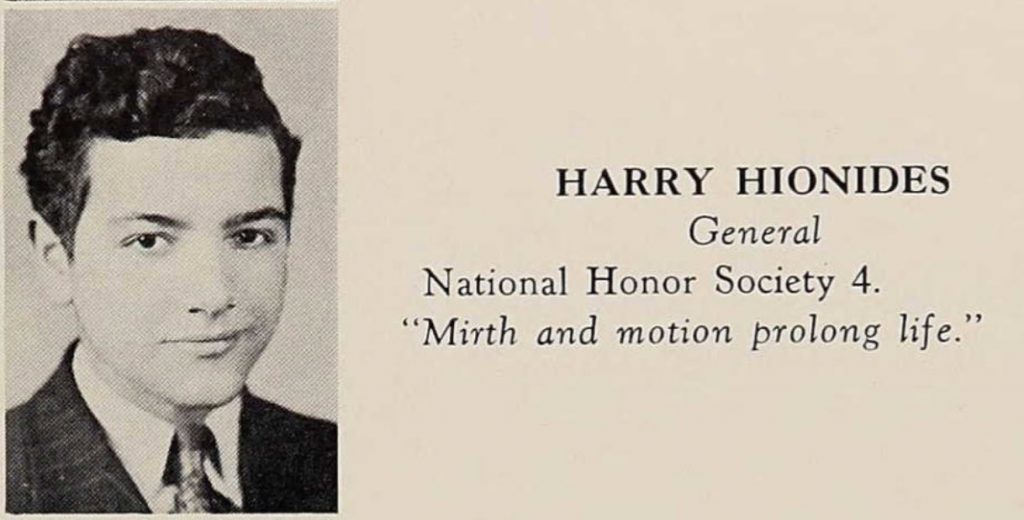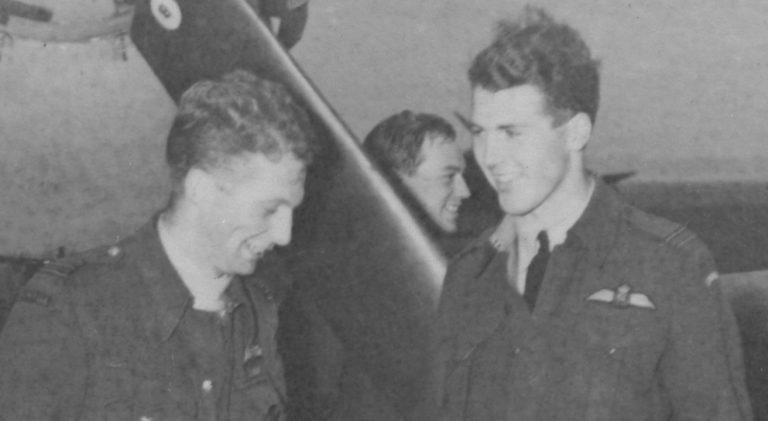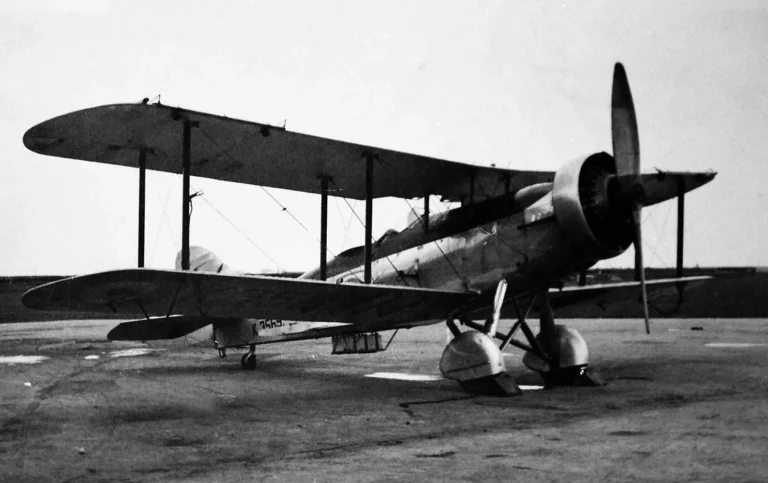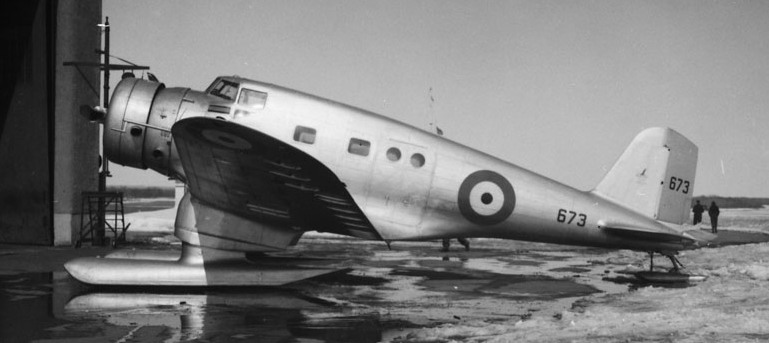Harry T. Hionides was a first-generation American, born in Ohio to Greek immigrants who arrived in the U.S. in 1912. He was a brilliant student, an exceptional mathematician, a dedicated scholar of Greek literature, and a member of the National Honor Society. His congressman had nominated him for both the U.S. Naval Academy at Annapolis and the Military Academy at West Point. He was also a student pilot and had set his sights on a career in the U.S. Army, ultimately choosing to decline the Naval Academy nomination. Although he passed the academic exams with ease, a genetic heart defect prevented him from attending West Point. Tragically, his younger brother Chris, who served in the U.S. Coast Guard, would die of a heart attack at the age of 19 in 1945.
Disappointed by this unexpected turn of events, Harry headed north to Montreal, where he enlisted in the Royal Canadian Air Force in July 1940. He was sent to Number 1 Initial Training School in Toronto to begin his aircrew training. Initially assigned to Elementary Flying Training School in London, his prior experience as a student pilot did not work to his advantage, and after a month, he was sent back to ITS in Toronto. His training path was then shifted to Air Observer (later called Navigator), and after four additional months of instruction at various schools, Sergeant Hionides was scheduled for overseas deployment in the summer of 1941.
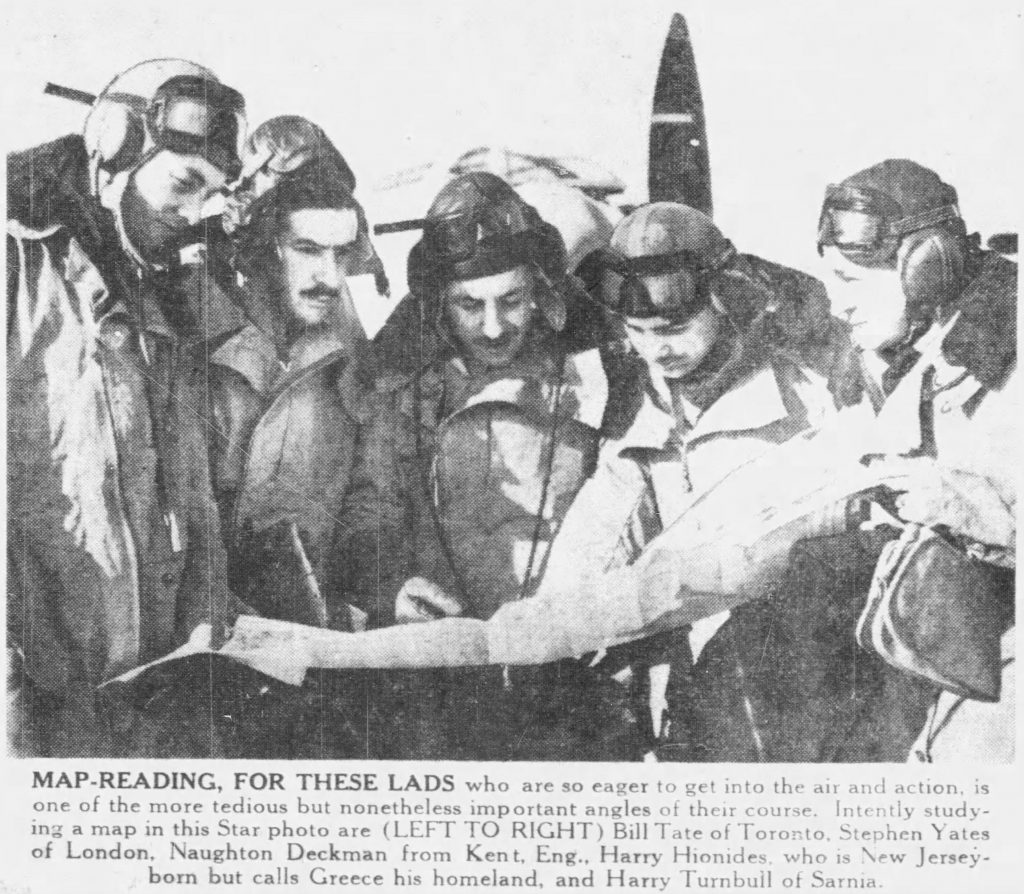
The German invasion of Greece had already been completed, and Harry, who strongly identified with the country as his homeland, was eager to join the fight. After completing his training at an Operational Training Unit, Hionides was posted to 209 Squadron in Northern Ireland, where he served as part of a crew flying Catalina patrol aircraft. After a month of searching for U-boats, Harry realized this was not the role he wanted, so he requested a transfer. Soon, he was flying Hudson bombers on ferry flights from the United Kingdom to the Middle East.
While in Egypt, Harry applied to transfer to 13 (Hellenic) Squadron—one of three squadrons that emerged from the remnants of the Royal Hellenic (Greek) Air Force (RHAF). Here, he finally found his true calling. Among his fellow Greeks, Harry embraced every role assigned to him, primarily training new observers, while also periodically flying convoy and anti-submarine patrol missions. He was commissioned and steadily rose through the ranks.
In 1944, the Greek Air Force awarded Harry the Military Cross Third Class in recognition of his exceptional service. “During a long period of service with No. 13 (H) Squadron, Flying Officer Hionides has shown a devotion far in excess of normal duties. His outstanding ability as an instructor has proved exceptionally successful in raising the standard of the newly trained observers. Throughout his operational sorties, he has exhibited the greatest zeal and energy.”
Additionally, the Greek authorities recommended him for the Distinguished Service Medal for his bravery in rescuing his pilot from a flaming wreck, though it appears this award was never officially granted.
Following his tour with 13 (H) Squadron, Harry was attached to the headquarters of the Royal Hellenic Air Force, where he continued serving for the remainder of the war. As the Germans retreated from Greece, the RHAF relocated to Athens and carried on its operations. Harry was outspoken in advocating for the plight of the Greek people after the German occupation and even met King George II of Greece while in Africa. The king personally declared him Greece’s “favourite son.”
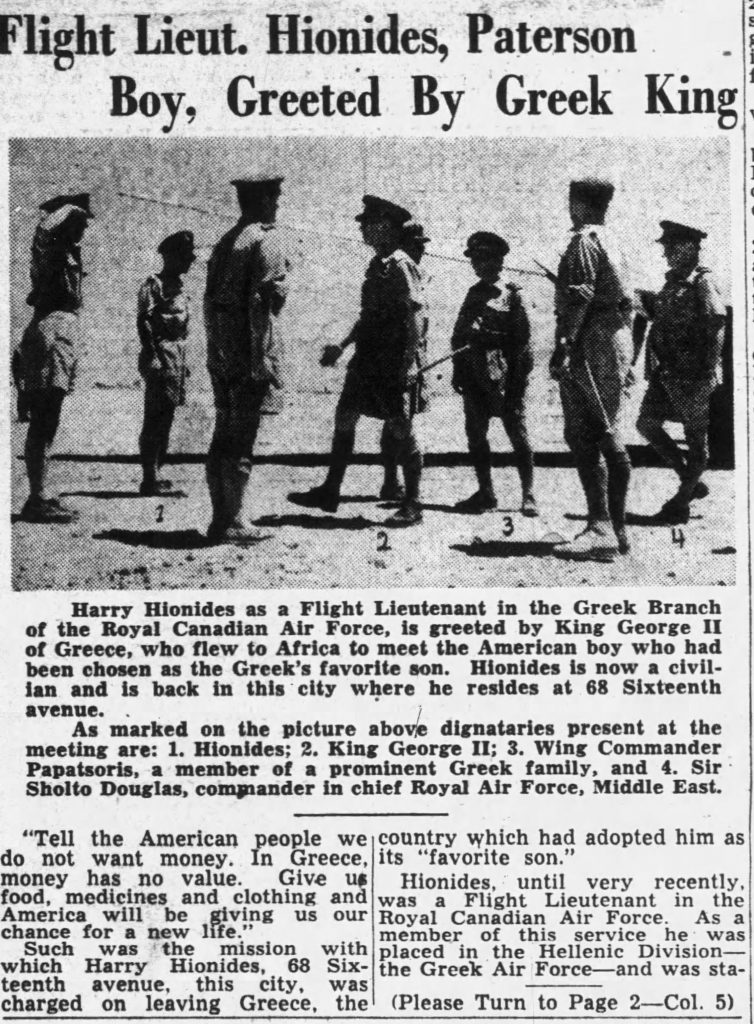
After the war, Harry returned to the U.S. and earned a degree in Greek Studies from Columbia University. He then pursued further education at the University of London and Oxford, where he completed two additional degrees. He went on to become a teacher of Greek Studies and an author before his premature death in 1977 at the age of 52.
An interesting footnote: Another Canadian, Flying Officer John Granda, served as a wireless operator and air gunner with 13 (H) Squadron and was also decorated by the Greeks for his service. Granda and Hionides began their RCAF careers together in the same class at 1 ITS in Toronto.
